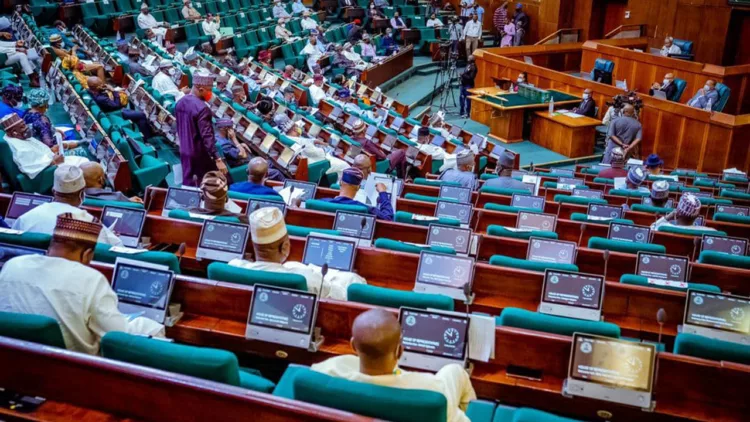There is a very huge difference between good politics by a legislator and good performance as a legislator. Ironically, the measure of performance of a lawmaker has been judged with the wrong parameters over the years, which I consider a fundamental defect in our national discourse.
The basic functions of lawmakers should form the parameters to rate their performance. It is inappropriate for a lawmaker to be rated as the best just on the account of the number of faithful such lawmaker sponsored on holy pilgrimage or the number of wheelbarrows and grinding machines distributed to his constituents, these for me are side attractions.
This major defect in the public space is what the OrderPaper MVP Hall of Fame seeks to cure by changing the narratives.
The OrderPaper report on the Performance Appraisal of the 9th National Assembly aims to establish who is a good and effective legislator, using the volume of sponsored and processing bills and motions by legislators as an evaluation matrix.
For want of space, I would avoid going into details of the report. Nevertheless, testimony by one of the most respected lawmakers and former speaker of Kwara State House of Assembly, Prof. Ali Ahmed confers some credibility on the process.
Ali Ahmad, an academic, former chairman, House of Representatives Committee on Judiciary and former speaker, Kwara State House of Assembly said, “I have served as a legislator at both the state and national levels and I can say without any iota of equivocation that the MVP Hall of Fame is a bold and unprecedented initiative. It will not only keep legislators on their toes to ensure higher levels of productivity and greater connection with citizens but also elevate the position of constituents as the ultimate bosses with powers to make objective performance appraisals, and consequently, hire and fire elected officials. I congratulate OrderPaper Nigeria and its partners on this milestone contribution to democratic growth and development.”
Premised on the above and other similar acceptance from prominent lawmakers and scholars, OrderPaper has introduced a new topic into the discourse in the contest for presiding officers of the 10th Assembly. If the system must change from empty praise singing, the attention of lawmakers must shift to the performance index of those who choose to lead the parliament.
According to the founder and executive director of OrderPaper Nigeria, Oke Epia, “We believe that the contestations for the presiding and principal officers of the 10th National Assembly should be viewed from the broader and more objective perspective of performance, capacity, and character. While zoning is a credible criteria given the context of Nigeria’s diversity and the necessary requirement for inclusion and power-balancing, it is in the overriding national interest to also prioritize track records. Citizens have a right to know and make valid judgements on the suitability or otherwise of those seeking to become leaders of the legislature, which is the most critical arm of government in a democracy.
“That is why over the years, OrderPaper has set objective metrics for sufficiently measuring the performance of members of the National Assembly, especially on bills using the indices of volume, value, impact and progression (VVIP). So, over the last three years of the current Assembly, we have produced concise but comprehensive appraisals of all 469 members of the National Assembly (108 in the Senate and 360 in the House of Representatives). We have been able to offer performance appraisals of the National Assembly and provide a valid and objective basis for citizens to determine the suitability or otherwise of incumbent legislators seeking to become speaker, deputy speaker, president of the Senate and deputy president of the Senate as well as principal officers in both chambers.”
The seminal report released by OrderPaper, therefore, lends an avenue for discussing, in a quantitative and qualitative method, the performance of the legislature and legislators on bills, vis-a-vis the contest for speakership of the 10th House of Representatives.
The lawmakers who made the semi-final list included: “Top Performers- Value and Impact Bills – Samuel Ifeanyi Onuigbo (APC, Umuahia North/Umuahia South, Federal Constituency, Abia); Ezenwa Francis Onyewuchi (LP, Imo East Senatorial District); Ovie Augustine Omo-Agege (APC, Delta Central Senatorial District), and Uba Sani (APC, Kaduna Central Senatorial District), Benjamin Okezie Kalu (APC, Bende, Federal Constituency, Abia).
On the other hand, top performers – Senate Productivity Index – Uba Sani (APC, Kaduna Central Senatorial District); Ibrahim Yahaya Oloriegbe (APC, Kwara Central Senatorial District); Aishatu Dahiru Ahmed (APC, Adamawa-Central Senatorial District); Mohammed Sani Musa (APC, Niger East Senatorial District) and Ovie Augustine Omo-Agege (APC, Delta Central Senatorial District).”
From the list of semifinalists above, spokesperson of the House Kalu is the only lawmaker seeking to be speaker of the 10th Assembly, while two others; Tajudeen Abbas and Yusuf Gagdi are contesting for the same position featured in other categories.
Judging by the MPV ranking, Kalu is the last man standing in the House and deserves to be speaker. Whether or not the members-elect would be persuaded by this argument is a different ball game.

